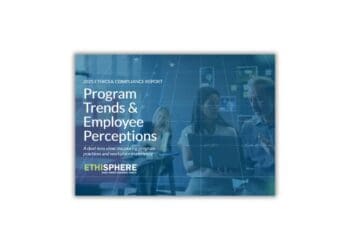Compliance
News and regulatory developments, guidance from thought leaders and insight into topics related to the work of corporate compliance professionals.
MORE COMPLIANCE ARTICLES
How to Use the DOJ’s ECCP to Build (or Fix) Your Compliance Program
Corporate compliance programs face increasing scrutiny as the DOJ applies its evaluation framework across industries and company sizes, from multinational...
When Deregulation Means More Work: The Compliance Professional’s Paradox
Whipsaw changes can multiply workload for compliance teams
Corporate Transparency Rollback Would Be Bad for Business
FinCEN’s ill-conceived interim rule will prolong uncertainty for businesses and further damage America’s standing abroad
‘Green Sprint’ Your Way Past ESG Backlash
As ESG programs face growing critique, organizations need practical approaches that deliver measurable results. Business sustainability expert Marga Hoek introduces...
What Gets Measured Gets Managed, but What Actually Matters in Compliance?
Looking beyond standard measurements to identify the quiet signals that help compliance teams address issues before they become crises
SPOTLIGHT ON ESG
MORE COMPLIANCE ARTICLES
Telemarketing Rule Update Demands Faster Action on Consumer Opt-Outs
New requirements reduce opt-out processing time from 30 to 10 days and expand what qualifies as a "reasonable" consumer revocation...
Neuroscience of Compliance Training
Is your compliance training working with your employees' brains or against them? Whitepaper Neuroscience-Driven Training Techniques What’s in this whitepaper...
CCO Insights: How to Articulate the True Value of Your Compliance Program
Benefits of robust programs aren’t always obvious, but buy-in remains critical
DOJ’s New CEP Proposes Guaranteed Declination for Some Self-Reporters
The Trump Administration continues reshaping its approach to corporate crime, with the DOJ issuing major revisions of its corporate enforcement...
Exploring CorpFin’s New Perspective on Covered Stablecoins
Guidance clarifies when digital assets function as payment tools rather than investment vehicles





























